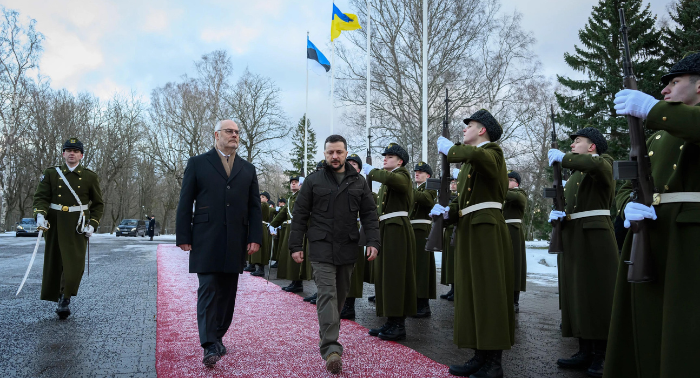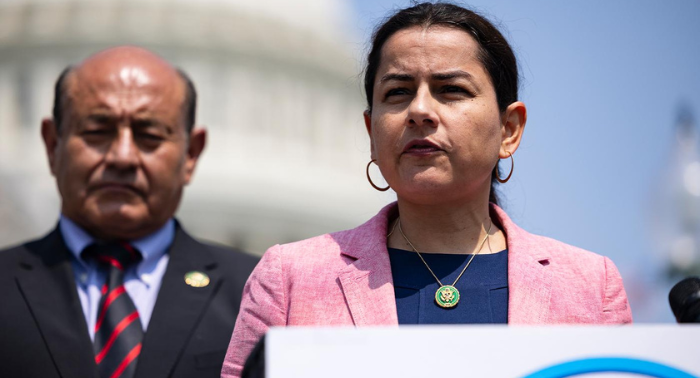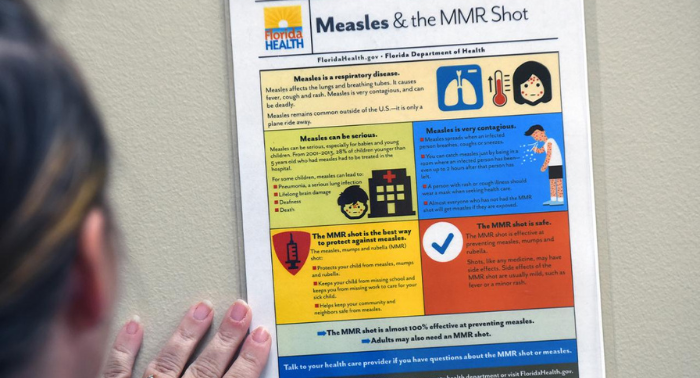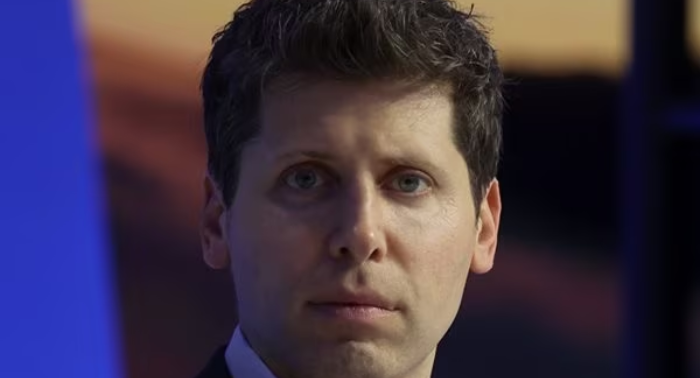Ukrainian President Volodymyr Zelenskyy has firmly rejected the idea of a cease-fire in the ongoing conflict with Russia, expressing concerns that such a pause would provide an opportunity for Kremlin forces to rearm and regroup, ultimately putting Kyiv’s troops at a disadvantage.
During his visit to Estonia, Zelenskyy emphasized that a pause in the Ukrainian battlefield would not equate to a halt in the war, which could ultimately play into Russia’s hands and potentially lead to adverse consequences for Ukraine.
Cease-fire proposals have been sporadically suggested since Russia’s full-scale invasion in February 2022, but they have not been successful in taking hold.
With both sides needing to replenish their weapons after nearly two years of continuous conflict and the front line largely stagnant due to harsh winter conditions, there is a pressing need for artillery shells, missiles, and drones for long-range strikes.
Zelenskyy raised concerns about Moscow allegedly procuring artillery shells and missiles from North Korea and drones from Iran.
During his visit to Estonia, Zelenskyy sought additional support for Ukraine from its Baltic allies, who have been unwavering supporters during the conflict. Ukraine has already received substantial military aid from Western allies.
Estonian President Alar Karis underscored the urgency of boosting military production capabilities to provide Ukraine with the necessary weaponry promptly. He noted that European Union countries have pledged significant financial support for Ukraine but emphasized the need for continued assistance.
Despite earlier promises of support, there have been delays in fulfilling commitments. For example, a plan by the U.S. administration to provide $60 billion in new funding to Kyiv is facing obstacles in Congress, and Europe’s commitment to supply 1 million artillery shells within 12 months has fallen short, with only about 300,000 delivered to date.
Zelenskyy stressed that Ukraine requires air defense systems to counter Russian aerial attacks that have repeatedly targeted civilian areas, although Moscow insists its strikes are aimed solely at military targets. Recent intense Russian bombardments, with over 500 drones and missiles fired between December 29 and January 2, have strained Ukraine’s air defense resources, leaving the country vulnerable unless additional weapon supplies are secured.
Zelenskyy secured increased support from Lithuania and was heading to Latvia after his visit to Estonia. These small Eastern European nations have been steadfast political, financial, and military supporters of Ukraine, with concerns in the region about the possibility of becoming potential targets for Moscow’s aggression.
These Baltic countries, once annexed by Josef Stalin during World War II and subsequently regaining independence in 1991 with the Soviet Union’s breakup, joined NATO in 2004, aligning themselves with the military protection of the U.S. and its Western allies.
In a recent development, a Russian S-300 missile struck a hotel in Kharkiv, Ukraine’s second-largest city, causing injuries to 13 people, including a Turkish journalist. Kharkiv has experienced consecutive nights of attacks, further highlighting the ongoing challenges faced by Ukrainian cities.




